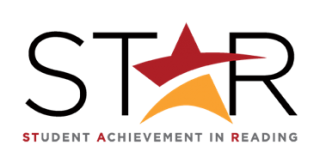
The STAR (STudent Achievement in Reading) initiative focuses on building the reading skills of intermediate ABE learners at grade level equivalent (GLE) 4–8.9. In this comprehensive training, learn how to use evidence-based reading instruction (EBRI) strategies and practices appropriate to this intermediate level that will enable you to support readers in making measurable gains.
STAR training takes place over several months and covers elements critical to effective reading instruction, including diagnostic assessment, differentiation, and specific strategies for teaching the four components of reading—alphabetics, fluency, vocabulary, and comprehension.
- ABE teachers and tutors of reading at GLE 4-8.9
- Directors and director-designees of STAR programs
This professional development activity/course is designed for:
Massachusetts has provided STAR training since 2010 because the evidence has proven that a STAR classroom is a highly successful instructional model for intermediate readers. The foundation for STAR is evidence-based reading instruction (EBRI). EBRI strategies have been shown to be effective in helping adult learners make academic gains.
WIOA requires that all programs offer instruction in the essential components of reading to all levels of learners in adult basic education. STAR, focusing on the intermediate range of GLE 4–8.9, is explicitly listed as one of the ways in which OCTAE “supports states in meeting these ... WIOA requirements.” (Read more at To the Point: WIOA, EBRI & STAR.)
Participants are expected to complete all components:
- Three synchronous online sessions:
- Friday, October 29, 10:00 AM–11:30 AM
- Monday, February 14, 9 AM–12 PM
- Monday, May 23, 9 AM–12 PM
- 30 self-paced online modules
- Administration of diagnostic reading assessments to determine and prioritize individual learner’s areas of strengths and needs in alphabetics, fluency, vocabulary, and comprehension
- Implementation of EBRI techniques, including direct and explicit instruction and formative assessments
- Participation in an online community of practice
Programs may request instructional coaching and technical assistance, including teacher observations. Coaching is provided by nationally certified STAR trainers.
Effective STAR teachers require support from their directors. Because of the programmatic aspects of STAR, it is critical that directors understand what is involved. There is a 20-minute introductory recorded webinar just for you.
For more information about STAR, including quotes from adult learners and videos of STAR teachers, see https://www.sabes.org/star.
PDPs are available on request.
 Questions? Ask Evonne Peters (epeters@qcc.mass.edu), Director of the SABES ELA C&I PD Center and STAR State Coordinator for Massachusetts.
Questions? Ask Evonne Peters (epeters@qcc.mass.edu), Director of the SABES ELA C&I PD Center and STAR State Coordinator for Massachusetts.
Please note: You cannot access this online course from the SABES website. You will receive an email 1–2 days before the start date with instructions on how to access the course.
- Conduct diagnostic assessments of reading
- Group students and differentiate instruction according to instructional needs based on the results of the diagnostic assessments
- Organize an instructional reading routine
- Plan and deliver evidence-based reading instruction (EBRI) in the essential components of reading—fluency, alphabetics, vocabulary, and comprehension—for intermediate level ABE learners (GLE 4–8.9)
- Use explicit instruction methodologies
- Monitor and adjust instruction as students’ needs change
- Revise programmatic structures that support STAR implementation
Upon completion of this professional development activity/course, you will be able to:
Online
MA
United States


